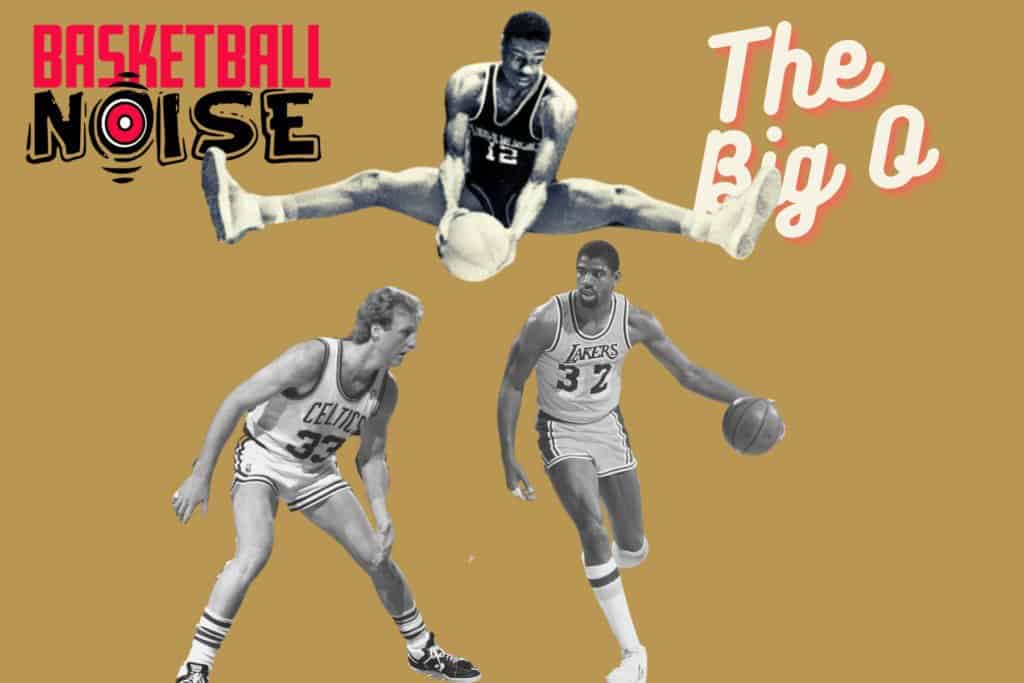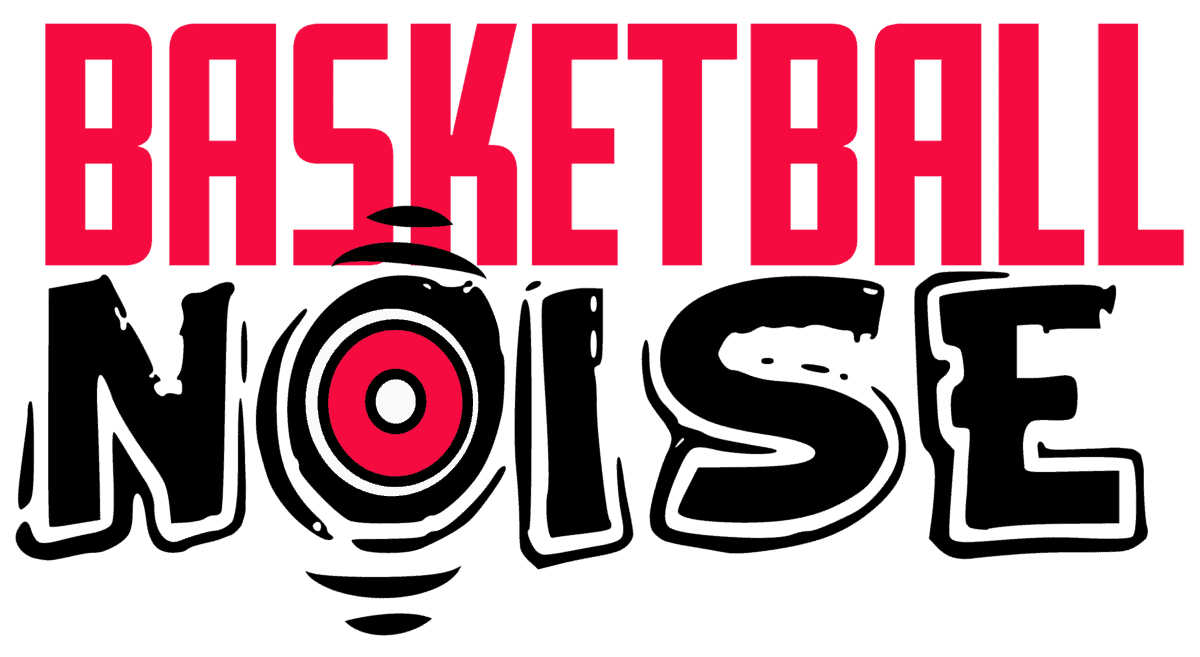Yes, Oscar Robertson won the NBA MVP in the 1963-64 season. The 12-time NBA All-Star won the coveted award while averaging 31.4 points (a career-high), 9.9 rebounds, and 11.0 assists per game and leading the now-defunct Cincinnati Royals to an impressive 55-25 record.

This was an exceptional achievement by The Big O as a Point Guard in an era that was dominated by big forwards and centers like 11-time NBA champion Bill Russell and Philadelphia and Los Angeles Lakers legend Wilt Chamberlain. Robertson really was a stand out performer in his generation, one who’s legend has quite rightly echoed across era’s.
From College Standout to NBA Star
After overcoming a poverty-stricken background and systemic racism throughout his childhood and high school years, Robertson joined the University of Cincinnati and their basketball team – the Cincinnati Bearcats- in 1957.
The three-time Sporting News College Player of the Year then went on to have arguably one of the best college careers of any future NBA player, leading the Bearcats to two Final Four while setting well over 10 NCAA and school records.
Robertson averaged just shy of 34 points per game – a feat that earned him three consecutive NCAA season scoring leader awards and three consecutive Consensus first-team All-American selections from 1958 to 1960 alongside an impressive 79-9 record.
The two-time Helms College Player of the Year capped off his impressive college run with a trip to the 1960 Olympics where he alongside fellow future NBA greats Jerry West, Walt Bellamy, and Jerry Lucas beat all comers to clinch gold.
How “the Big O” Revolutionized the Point Guard Position
After three dominant years in college, Robertson made himself available for the 1960 NBA Draft and was selected as the first overall pick by the now-defunct Cincinnati Royals. The three-time NBA All-Star Game MVP immediately proved that he belonged on basketball’s grandest stage by registering a 21-point, 12-rebound, and 10-assist outing in his debut.
The nine-time All-NBA First Team honoree then went on to average just shy of a triple-double that season (30.5 points, 10.1 rebounds, and 9.7 assists) to win that season’s NBA Rookie of the Year award. Robertson also led the league in assists.
Before Robertson, the point-guard position was mainly reserved for the shortest players in the league whose main job was to push the ball up the court and dish off assists to the centers and forwards through whom the bulk of the offense ran through. Examples of players that embodied the norm during the era include former Boston Celtics duo Bob Cousy and K. C. Jones and ex-Cleveland Cavaliers playmaker Lenny Wilkens.
Robertson was the anomaly as he was not only 6’5 and weighed a solid 205 pounds but was also quite comfortable playing with his back to the basket and backing down defenders to get to the spots where his hot was most effective on the court. The six-time NBA assists leader utilized his size, and length coupled with exceptional timing and athleticism to become an effective rebounder.
Many NBA historians believe that it was Robertson who paved the way for much taller point guards like five-time NBA champion Magic Johnson and former Orlando Magic ace Penny Hardaway by highlighting the competitive advantages that size provides at the point-guard position.
Defying the Bill Russell – Wilt Chamberlain Odds
In his sophomore campaign (1961-62), Robertson made NBA history by becoming the first-ever player to average a triple-double for a season with a mind-boggling stat line of 30.8 points, 12.5 rebounds, and 11.4 assists. In doing so, the Big O set a record that lasted 55 years until former Oklahoma City Thunder point guard Russell Westbrook became the second player to do so in 2016-17.
Despite a slight dip in his scoring in his third year, Robertson continued to prove that he was one of the best players in the league by almost averaging another triple-double with 28.3 points, 10.4 rebounds, and 9.5 assists per game.
His crowning moment came in his 1963-64 season when he averaged a career-high 31.4 points per game along with 9.9 rebounds and 11.0 assists to win the 1964 NBA regular season MVP award in an impressive race that also featured Wilt Chamberlain, Bill Russell, Bob Petit, Jerry West, and Elgin Baylor.
What makes Robertson’s accomplishment all the more monumental is the fact that he won the award in an era that was dominated by the Wilt-Russell rivalry. To put things into perspective, in the nine seasons from the NBA’s 1959-60 season to its 1967-68 campaign, Robertson was the only other player aside from the two to win the award.
Over the duration, Russell won five MVP trophies whereas Wilt won four. Robertson was also the only point guard and the only non-center to win the NBA MVP award in the two decades/21 seasons from 1959-60 to 1979-80. Other centers to win the award over the duration include Lew Alcindor/Kareem Abdul-Jabbar, Wes Unseld, Willis Reed, Dave Cowens, Bill Walton, Moses Malone, and Bob McAdoo.
If Robertson would have played in today’s NBA, most NBA historians agree that the three-time UPI College Player of the Year would have won multiple NBA MVP awards having averaged a triple-double of 30.3 points. 10.4 rebounds and 10.6 assists per game in his first five years in the league.
Wasted Potential
Despite dominating the league in his 11-year stint with the Royals, Robertson was unable to make deep playoff runs and only managed to progress beyond the first round once due to the Royals’ inability to pair him with other talented players.
Rather than go all in on Robertson, the Royals opted to trade him to the Milwaukee Bucks ahead of their 1970-71 season. At Milwaukee, Robertson was paired with a young and promising Kareem Abdul-Jabbar (then Lew Alcindor) to win his one and only NBA title in 1971.
Roberson and Kareem are arguably one of the biggest “What Ifs” in NBA history. Many believe that if the two teamed up earlier, they would have undoubtedly rewritten NBA history and put themselves in the debate of one of the greatest duos ever to do it.
